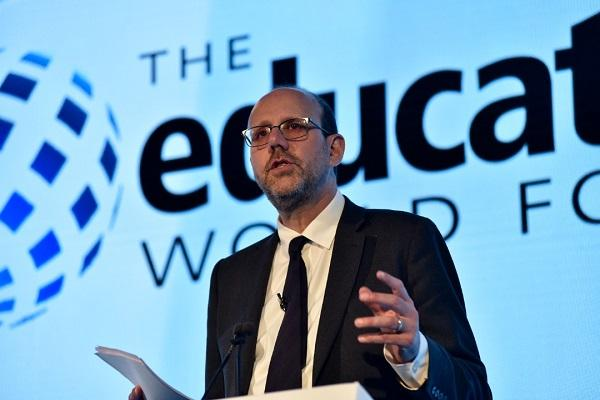Nobel Prize-winning economist Professor Michael Kremer, has confirmed among the largest learning gains measured in schools by a major study in Africa, including Nigeria.
The groundbreaking study, led by the 2019 Nobel Prize-winning economist, finds that children living in underserved African communities receive 53% more learning in schools supported by Nigerian government partner NewGlobe, throughout their early childhood and primary schooling.
The study findings were announced in a speech by the Nobel Prize-winning economist to African Heads of State and Education Ministers, including Nigerian UBEC and SUBEB leaders at the Education World Forum in London themed ‘Education: building forward together; stronger, bolder, better.’
The holistic methodology studied by the Nobel prize winning author underpins Nigeria’s state wide Lagos (EKOEXCEL), Edo (EdoBEST) and Kwara (KwaraLEARN) public transformation programs. Nigeria’s Governors have implemented the methodology to transform learning outcomes across their public school systems including early childhood, primary and junior secondary schools.
The study finds that if replicated at scale across public education systems, the gains would be enough to put African children from underserved communities on track to match their peers in countries with incomes three or four times higher.
The study finds that after two years, primary school students in NewGlobe’s Kenya program are nearly a whole additional year ahead of children taught using traditional methods.
For early childhood development (ECD) – typically 3 and 5-year-olds – children gain nearly an additional year and half of learning; learning in two years what students in other schools learn in three and a half years.
In the words of the study:
“The learning gains in the study are among the largest in the international education literature.”
In academic terms, NewGlobe increased student learning by 1.35 standard deviations for early childhood learning and 0.81 standard deviations for primary learning. To put these into context, these effect sizes far outpace the 99th percentile of, and represent learning gains in the top 1%, ever, rigorously studied at scale in Africa.
The study also finds children taught using NewGlobe’s methods are more than three times more likely to be able to read at age seven than their peers in other schools. The World Bank estimates that 90% of 10 year-olds in Sub-Saharan Africa do not reach this benchmark.
Students starting with the lowest learning levels gained the most, with girls making the same leap in learning as boys. It contrasts with research which shows girls in Sub-Saharan Africa are consistently disadvantaged in learning.
The results are a resounding affirmation of NewGlobe’s integrated learning system across Africa, including Nigeria, and South Asia supporting more than a million children in schools and increasing every year.
The two-year study is the result of a large-scale randomized control trial (RCT), including more than 10,000 students from low socioeconomic backgrounds.
It finds:
- After two years, primary students taught using NewGlobe’s full learning system are nearly a whole additional year of learning ahead of students in other schools taught using ordinary methods – with learning increased by 0.81 standard deviations.
- For early childhood students, two years of teaching using NewGlobe’s methods puts them a year-and-a-half of additional learning ahead of students in other schools – with learning levels increased by a remarkable 1.35 standard deviations.
- In NewGlobe-supported schools, 82% of Grade 1 students – typically six to seven year olds – can read a sentence, compared with 27% of those in other schools.
- Students starting from the lowest learning levels gain the most. Learning gains were greatest for students predicted to have the lowest performance who outperformed similar students attending other schools by a larger margin than their more advantaged peers.
The study is the largest of its kind in Africa.
The results are by far the most authoritative on the use of the model pioneered by NewGlobe, which includes individual – and ongoing – training and coaching for all teachers, use of a digital learning platform with real time data analysis; teaching guides grounded in scientifically-based pedagogy; and a 360 support system.
2019 Nobel Prize Laureate, Professor Michael Kremer said:”
““The effects in this study are among the largest in the international education literature, particularly for a program that was already operating at scale.
This article appeared originally on The Nation, June 8, 2022


